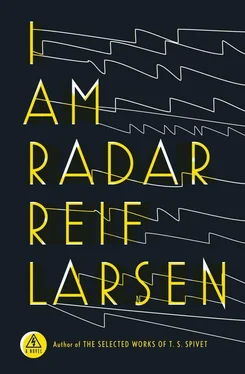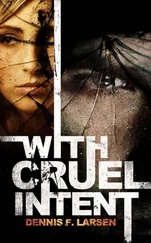“Whatever were they thinking?” Charlene could not help saying out loud.
Naked, T. K. had looked over at her and asked her what she meant by this and she said nothing, but she remembered feeling a kind of infinite sadness. To let a kid like him, a miracle like him, loose in the city? The city relished the chance to eat people like him for breakfast. In the end, of course, she was wrong: it was not him but her whom the city would devour, but she would not understand this until much later, when she was already safely in its belly.
She had first met T. K. at one of those sweaty, drug-heavy midnight Bleecker Street parties, where he had shown up with a fellow first-year med student, looking bewildered and comically out of place in an ill-fitting three-piece linen number, as if he were about to participate in a grade-school ballroom dance competition. She had laughed out loud when she saw him like this, and yet she had also fallen hard, very hard — she could not explain why. Encouraged by the lingering buzz of a Nembutal cocktail, she made a beeline across the room, greeting him with an overly familiar kiss and pulling him, despite his earnest protestations, into a round of astrological strip Ouija.
Things had slipped into place that night, as they sometimes do, and they had both surprised themselves by going back to her place and fucking with what she mistook for a mechanical midwestern urgency and with what he mistook for a groovy East Coast blasé. There had been an incredibly awkward moment when he, still naked, had fumbled for his linen trousers and then produced, unceremoniously, a roll of crumpled bills and offered them to her. She stared at him, bewildered, so offended and yet so moved by his innocence that she started to laugh and pushed the money back at him.
“It was a joke,” he said hastily, repocketing the bills, though the look in his eyes told her he had no idea what to think. They lay in bed afterwards, and he pointed to every bone in her body and named them for her — every bone, including all twenty-eight bones of the skull. Touching her own cranium with her fingertips, she marveled at the power of the naming: to conjure twenty-eight things when before there was only one.
For two weeks, T. K. occupied her every waking thought. Together they explored the city, laughing at the intricacies of urban density — the joy of a child leaping through an open fire hydrant, a ninety-year-old woman walking five shih tzus, an impromptu performance art — cum — Mod dance contest in the middle of Forty-second Street as taxicabs blared their horns — she seeing it all through his eyes for the first time. She wanted to protect him and she wanted to be ravaged by him. It was the closest thing she had felt to love. She shot up only twice during this time, and never in front of him. It felt like cheating.
Strangely, he refused to take her back to his apartment in Washington Heights. He claimed his place was too small.
“I don’t care,” she said. “I want to see where you live.”
“It’s not fit for someone like you,” he said and kissed her on the eyebrow, where she had a tiny scar from falling down the stairs as a child.
And then everything imploded, suddenly, as if it had always been meant to implode like this, as if time were only a prelude to all that which must come to an end. He met her outside her apartment one morning and said he could not see her anymore.
“Why?” she said, crying. She felt the panic rising in her chest. And she wanted to ask, “Is it because I’m white?” and she hated herself for wondering this and she hated herself for not asking it.
And he said, “I just need to concentrate more on school,” even though they both knew it was not true, and what was true would never — could never — be said.
Years later, she would see him again, after having spent many nights dreaming of his voice, his body, his laugh, after searching for him in the streets, at the parties, on the subways, in the parks, in the shadows of the skyscrapers that towered above her. He came calling on her in New Jersey, quite out of the blue — she couldn’t really make out how he had managed to track her down. She was already dating Kermin by then, but when T. K. showed up on her doorstep, it was as if no time had passed. They had sat for a coffee, and she had wanted to ask him a thousand questions — how he had managed, whether the world had defeated him or he had managed to defeat it — but they had not talked about these things or about anything else she could recall. Nor did she ever get to ask him what his initials stood for. Maybe they didn’t stand for anything. And then he was gone again, this time for good, and it was as if she had experienced a dream in which she dreamed of a dream she had had long ago.
And so, as she sat in the kitchen with the twins, she made a secret prayer to God or some vague stand-in for God that the father of her unborn child be T. K. and not Cal, the serial narcissist, or Hector, the Peruvian dealer who had shown her his gun and called her “mi pequeño coño.”
She considered keeping the child. Raising him alone. She really did. Particularly if it was T. K.’s — she could see herself devoting the rest of her life to raising his brilliant little son. Reading him Robert Louis Stevenson. Telling him about the father he never knew. But then she had a fever dream in which she was trapped in an infinitely long hall of white doors, all of them without doorknobs. Each door was unlocked, she knew, but she had no way of opening them. She woke up sweating, terrified. For the first time, the baby growing inside her felt foreign, thrust upon her by a guiltless world.
The next morning, she called the number the twins had written on the prescription bottle and then rode the subway up to Harlem to the fixer’s house. In the subway car, she found herself studying the faces of the weary black men, willing them to be T. K., willing them to come rescue her from what she was about to do.
The fixer’s name was Jarmal, and he was not charming in the least. He took her into his living room, where there was a yellowing dentist’s chair in the middle of a stained afghan rug. The room’s shelving was stuffed with collected Oriental tchotchkes that had been hastily covered in plastic sheeting, creating the impression of an impromptu crime scene.
“Take off your clothes and then take this,” he said, handing her a pill.
Afterwards, she was so groggy and in such excruciating pain that she forgot to ask if the fetus had been black, whether you could even tell that kind of thing before a baby was born.
She paid him $75 for his services. All things considered, this seemed like a fairly good deal until she developed an infection one week later that landed her in the St. Luke’s emergency room. It was the day before Thanksgiving. Her parents arrived, horrified at the doctor’s declaration that their oldest daughter had come within “two hours of dying,” whatever this meant. Vivienne even called her on the phone, her honeydew voice mimicking concern, with mixed results. Her sister was cursed with the unexamined libertarian ignorance that only the very privileged could espouse: she believed everything that happened to you, good or bad, was the result of your own choosing. The problem was that in Charlene’s case, this was most likely true.
Charlene refused her parents’ offer to help her recuperate in their soft Trenton lair and (this part was implied) to take stock of how far she had fallen with a Rutgers degree in hand. Wounded, they made sure she was going to live and then promptly cut off her allowance.
She convalesced back in her squalid little Hell’s Kitchen den, hardly leaving her bed for almost three weeks. Unexpectedly, Lila and Vespers displayed some real maternal behavior, checking in with her nightly and bringing her back sad little clumps of foraged groceries. They even chipped in to cover her rent that month. Charlene, feeling the full effects of her withdrawal, pleaded for opioids. To their credit, the twins refused. Charlene became manic. More than once, she seriously considered suicide. Her only solace was a stray cat that frequented their fire escape. She fed him butter pats and named him Bumble Bee — Bee for short. Bee had a gift for non-judgment.
Читать дальше












